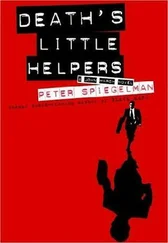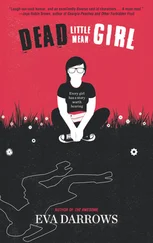Dale Furutani - Death in Little Tokyo
Здесь есть возможность читать онлайн «Dale Furutani - Death in Little Tokyo» весь текст электронной книги совершенно бесплатно (целиком полную версию без сокращений). В некоторых случаях можно слушать аудио, скачать через торрент в формате fb2 и присутствует краткое содержание. Год выпуска: 2012, Жанр: Криминальный детектив, на английском языке. Описание произведения, (предисловие) а так же отзывы посетителей доступны на портале библиотеки ЛибКат.
- Название:Death in Little Tokyo
- Автор:
- Жанр:
- Год:2012
- ISBN:нет данных
- Рейтинг книги:3 / 5. Голосов: 1
-
Избранное:Добавить в избранное
- Отзывы:
-
Ваша оценка:
- 60
- 1
- 2
- 3
- 4
- 5
Death in Little Tokyo: краткое содержание, описание и аннотация
Предлагаем к чтению аннотацию, описание, краткое содержание или предисловие (зависит от того, что написал сам автор книги «Death in Little Tokyo»). Если вы не нашли необходимую информацию о книге — напишите в комментариях, мы постараемся отыскать её.
Death in Little Tokyo — читать онлайн бесплатно полную книгу (весь текст) целиком
Ниже представлен текст книги, разбитый по страницам. Система сохранения места последней прочитанной страницы, позволяет с удобством читать онлайн бесплатно книгу «Death in Little Tokyo», без необходимости каждый раз заново искать на чём Вы остановились. Поставьте закладку, и сможете в любой момент перейти на страницу, на которой закончили чтение.
Интервал:
Закладка:
I pursed my lips and thought about the ethics of the situation. When I thought I might be picking up a package of drugs, there was no hesitation in my mind that I would open the package. Now that there seemed to be a possibility that Newly’s story might be true, I was hesitant.
Bouncing the envelope in my hand, I stared at the package.
5
Iwasn’t at the hotel for what happened next, but I later talked to Nachiko Izumi and I feel as though I know exactly what transpired. It started the next morning in the maid’s staging area. Like so many days that turn out to be traumatic, the start was normal and routine.
As was the custom at the hotel, the maids were all lined up in a row with the flair of a military unit. There were nine or ten of them and they all stood at attention as the steely-eyed head of housecleaning for the hotel made her inspection. Next to each housekeeper’s cart was an Asian woman dressed in a white uniform. Piled high on the carts were fresh smelling linens, newly laundered towels, glossy plum colored boxes of matches with the Golden Cherry Blossom imprint, and plastic wrapped water glasses with stickers that proclaimed that the glasses were “Sanitized for your safety.”
Most of the women were Japanese, as was the head of housekeeping. As the head walked down the line of maids, she looked rather like a Marshal of Napoleon reviewing an artillery battalion. She abruptly stopped in front of one of the carts and noticed with distaste that the cart had not been stocked with the geometric precision that the more experienced maids are capable of. “Straighten up those glasses in a neat row, and make sure the various types of towels are not mixed together on the cart,” she ordered in an imperious tone.
A thick accent to her English rubbed off some of the sharp edges of her words, but it was plain she was not pleased, and the hapless maid scurried to do as she had been instructed.
As the head of housekeeping finished walking down the line she turned and gave the maids she supervised one last look. Then she gave a curt nod and said, “Okay. Let’s get to work.”
One of the maids went directly to the fifth floor. She started her routine by checking a clipboard with a computerized list of the rooms to be cleaned, and moved to the first room, pushing her cart down the green-carpeted corridor. The row of drinking glasses in the cart made a cheerful tinkling sound as they banged together, forming a descant to the squeaking baseline provided by a bad bearing in one of the cart’s wheels.
The maid was Nachiko Izumi, and the sound of the wheel annoyed her. Ms. Izumi was twenty-nine years old and in the U.S. less than five months. She was on a student visa and taking college classes in English literature and political science at East Los Angeles College. She was probably working without a green card, but working illegally is a kind of local sport in Los Angeles and I didn’t ask her about this.
She approached number 517, and she didn’t see the thin crescent of dark liquid peaking out from under the edge of the door. People had passed the room all morning without noticing the encroaching stain.
She moved the cart to the door and knocked softly. After a few seconds, she knocked more forcefully, calling out, “Excuse me! Maid!” After another pause she called out, “Sumimasen” (excuse me). Many of the clientele of the Golden Cherry Blossom are visiting Japanese tourists and businessmen, so she called out in both English and Japanese before entering the room. Finally, after going through the entire ritual required of her, she inserted her passkey into the door and unlocked it.
As the door opened, her attention was immediately drawn to the dark stain on the carpet and the object that lay just inside the open doorway. She stared at the object for several seconds, her brain not processing what her eyes were seeing.
Lying in a circle of blood was a severed human forearm and what was left of a hand. Two fingers of the hand were missing, cleanly sliced off. The stub of the forearm, cut just below the elbow joint, was a pulpy mass of raw flesh, severed veins and splintered bone. It had been hacked off.
Ms. Izumi stared at the arm and gradually comprehended the horror that greeted her in room 517. She started to scream. It was a long, wailing scream, and she told me it was a long time before she was able to stop.
6
That morning I parked my Nissan in the lot at Second and Main, paid my $3.50 for the day, and started walking the block and a half to the office. In a part of town where parking can cost $3.00 every twenty minutes, this lot was a real find. I had the still-unopened package tucked under my arm, and although the day was sunny and not yet too hot, I was a little grumpy.
Mariko didn’t show up the night before, which disappointed me. I figured she was late at her acting class at the East West Players theater. The aspiring students tended to sit around and share dreams of glory after the class. For Asian actors, those dreams were especially tough to realize.
Mariko told me once that she was resigned to the obvious: as an Asian, she would be forever cast in “Asian” roles. She said, “It’s frustrating to realize that I’ll never get to play Desdemona or Lady MacBeth unless I’m cast as a novelty. And let’s face it, Ken, the number of Asian roles are few and far between. The number of good Asian roles are even fewer.”
One reason a place like the East West Players thrived was that it allowed an outlet for the fermenting creativity of Asian actors, writers, and directors. Almost all the plays done by East West were written by Asians for Asians. Because of this, however, they have a limited audience and limited commercial value. Mariko’s ambition to make a living at acting would never be realized at a small company like East West. In the commercial world, the world of mainstream television and movies, the number of paying jobs for Asians could typically be counted on the fingers of one hand during any given month.
“The odds of any actress making it are pretty slim,” she once said to me, “so it’s not like only Asians have a hard time.” She was tough in her own way, and very determined. I think that toughness motivated her to fight her problem with alcohol and join AA. In AA you make a commitment to change your life. Stopping the drinking was only a part of that life change. I liked her courage. I was trying to decide what to do with the rest of my life, and in Mariko I could see a model for someone who was bootstrapping her life, changing it, and following her dream. I admired her. Maybe my problem was I had no dreams beyond finding another job.
As I approached the office I saw a white Mercedes sports car coming down Second Street. The top of the car was down, and behind the wheel, with her hair blowing in the wind, was Rita Newly. She looked like a scene out of a trite car commercial.
I was about to wave to her when I saw the expression on her face change to alarm. She was looking at two men who were standing in front of the office building. Both were Asians. One was a thin, slight man dressed in an expensive looking double-breasted suit. The other man was bulky to the point of being ape-like, with thick shoulders and a boxy head, shaved bald. His suit looked like it was tailored by Kmart. They straightened up when they saw Rita’s sports car, and waved at her. The big man was missing half of his baby finger on the hand he waved with, and it looked peculiar when contrasted to the almost delicate, fully formed hand of the small man waving next to him.
Heedless of the oncoming traffic, Rita quickly spun the big wheel on the Mercedes and flipped a U-turn. Brakes squealed, horns sounded, and the drivers of other cars started cursing in a jarring mixture of English, Spanish, and Japanese, but Rita made her turn without a scratch.
Читать дальшеИнтервал:
Закладка:
Похожие книги на «Death in Little Tokyo»
Представляем Вашему вниманию похожие книги на «Death in Little Tokyo» списком для выбора. Мы отобрали схожую по названию и смыслу литературу в надежде предоставить читателям больше вариантов отыскать новые, интересные, ещё непрочитанные произведения.
Обсуждение, отзывы о книге «Death in Little Tokyo» и просто собственные мнения читателей. Оставьте ваши комментарии, напишите, что Вы думаете о произведении, его смысле или главных героях. Укажите что конкретно понравилось, а что нет, и почему Вы так считаете.











